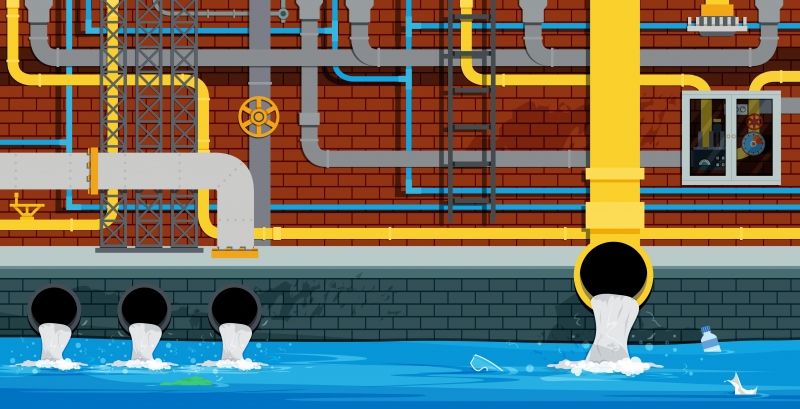No one wants to experience a problem with their sewer line, and the key to preventing an issue is good sewer maintenance. Most of us don’t think about our sewer lines all that often, but with a little care, you can ensure you’ll never be surprised with a major problem.

Be careful of your drains
What goes down your drain has to pass through the sewer line, so always be very careful about what you put down there. Never flush anything down the toilet other than toilet paper. Paper towels should never go down the toilet, and even if a wipe or sanitary product says it can be flushed, it’s better not to.
Also watch out for food items, particularly egg shells, banana peels, and potato peels. Even if you have a garbage disposal, these items may not get properly chopped up and can collect in your sewer pipes and cause serious trouble over time.
Don’t dump grease
Grease is a plumbing nightmare and one of the main reasons people have to get their drains cleaned. Cooking oil and other types of grease can cool and congeal as they go down the drain, eventually hardening with other debris and creating a huge clog.
The best thing to do is save your cooking grease in a container and throw it away once it’s cool. If you do make a mistake and pour it down the drain, chase it with lots of very hot water.
Keep your pipes maintained
A regular sewer camera inspection is one way to make sure your pipes are clean and free of any tree roots or shrub roots breaking through. Call a professional to come in and make this inspection, and while they’re at it, have them do a basic rooting service.
This gets rid of clogs, but it also clears out any limescale and soap scum building along the inside of your pipes. Have a professional look at your pipes once a year, and once a month you can help keep things clear by using an enzymatic cleaner.
Keep an eye on your plants
Your sewer camera inspection will tell you if any plant roots have broken into your pipes, but it would be nice to prevent that from happening at all if you can. Find out where your pipes are in the yard and make sure you don’t have trees or bushes growing too close to the line.
When you do plant trees, plant ones that grow slowly, like cypress, flowering dogwood, or paperbark maple. Stay away from the fast growing trees like silver or Norway maples, river birch, sycamore, or aspens.
Replace your pipes
All sewer pipes have to be replaced eventually, and if you plan for this expense, you can save up for it and get it done at a more convenient for you. The alternative is waiting for a sudden emergency, which is never convenient.
If your lines are more than 20 years old, consider having them replaced. New PVC pipes are durable and will not be split by roots as easily as metal or clay pipes. You can get this done using new trenchless pipe methods. This means you don’t have to dig up your yard to replace the line.
Get problems dealt with immediately
If you notice issues with your drains, or if you hear gurgling noises or smell sulfur in the house, you could have a sewer line problem. Don’t delay in dealing with this. A delay at this point could result in catastrophe later on.
The same holds true if a sewer inspection turns up a problem. Even if the issue is small, you don’t want to run the risk of a major break or backup flooding your house, wrecking your yard, and costing you thousands of dollars.



